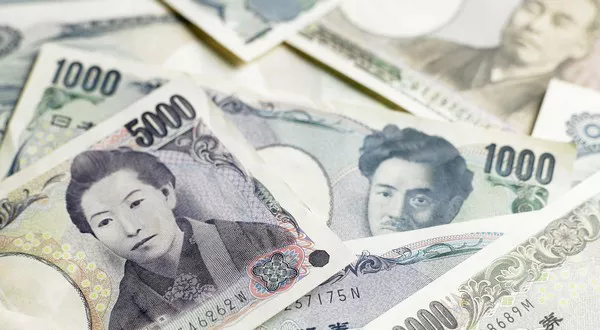The foreign exchange market is a dynamic arena influenced by various economic, geopolitical, and market-specific factors. Traders and investors constantly seek insights into the future movements of major currencies, including the Japanese Yen (JPY). In recent times, the Japanese Yen has experienced fluctuations, prompting the question: Will Yen go back up? In this article, we will delve into the factors influencing the Japanese Yen’s current status and analyze whether a rebound is likely in the foreseeable future.
Economic Fundamentals
To understand the potential trajectory of the Japanese Yen, it’s crucial to examine the economic fundamentals that shape the currency’s value. Japan, as one of the world’s largest economies, faces challenges such as an aging population, deflationary pressures, and slow economic growth. The Bank of Japan (BOJ) has implemented unconventional monetary policies, including negative interest rates and extensive quantitative easing, to stimulate economic activity.
However, these measures have not always translated into a sustained Yen appreciation. In the short term, economic indicators, such as GDP growth, inflation rates, and employment figures, can influence the Yen’s value. Observing these indicators can provide valuable insights into whether the Japanese economy is on track for recovery and whether the Yen is likely to strengthen.
Global Economic Trends
The Japanese Yen’s movements are also closely tied to global economic trends. Being a major player in the global market, Japan’s currency is influenced by events and developments in other economies. For instance, during periods of economic uncertainty or geopolitical tensions, investors often seek safe-haven assets, including the Japanese Yen. This flight to safety can lead to an appreciation of the Yen against other currencies.
Conversely, when global economic conditions improve, investors may shift towards higher-yielding assets, reducing the appeal of the Yen. Therefore, analyzing the broader global economic landscape is essential when attempting to predict the Japanese Yen’s future movements.
Trade and Export Dynamics
Japan is a major player in international trade, and the performance of its export-oriented economy significantly impacts the Japanese Yen. A weaker Yen can enhance the competitiveness of Japanese exports, benefiting the country’s manufacturers. However, a prolonged period of Yen depreciation can raise concerns about trade imbalances and economic stability.
Conversely, a stronger Yen can pose challenges for exporters, potentially impacting corporate earnings and economic growth. The government and the BOJ carefully monitor the exchange rate to ensure a balance that supports economic objectives. Assessing the trade dynamics and the government’s interventions provides valuable insights into the potential direction of the Japanese Yen.
Monetary Policy and Central Bank Actions
The Bank of Japan plays a pivotal role in shaping the Japanese Yen’s value through its monetary policy decisions. As mentioned earlier, the BOJ has implemented unconventional policies to address deflationary pressures and stimulate economic growth. The effectiveness of these policies, coupled with the central bank’s communication and guidance, can influence market expectations and impact the Yen’s value.
Traders closely monitor central bank statements, interest rate decisions, and policy outlooks to gauge the potential future direction of the Japanese Yen. Any signals of a shift in monetary policy can lead to market reactions, affecting the Yen’s exchange rate.
Market Sentiment and Technical Analysis
Beyond economic indicators and fundamental factors, market sentiment and technical analysis also play a crucial role in determining currency movements. Traders often rely on charts, patterns, and technical indicators to identify potential trend reversals or continuations. Additionally, sentiment analysis helps gauge the overall mood of market participants, providing insights into potential shifts in investor behavior.
Monitoring the Japanese Yen’s price action, trading volumes, and market positioning can offer valuable clues about the currency’s near-term direction. However, it’s essential to note that market sentiment can be influenced by various factors, including news events, economic data releases, and geopolitical developments.
See Also Assessing the Japanese Yen: Is it Overvalued or Undervalued?
Conclusion
In conclusion, predicting the future movements of the Japanese Yen requires a comprehensive analysis of economic fundamentals, global economic trends, trade dynamics, monetary policy, and market sentiment. While the Yen’s value is subject to fluctuations, the careful examination of these factors can provide a better understanding of the potential trajectory.
Investors and traders should remain vigilant, staying informed about economic developments and market trends that may impact the Japanese Yen. By adopting a holistic approach to analysis and considering both short-term and long-term factors, market participants can make more informed decisions regarding their exposure to the Japanese Yen. Ultimately, the question of whether the Japanese Yen will go back up depends on a complex interplay of factors, and only time will reveal the currency’s future path.


